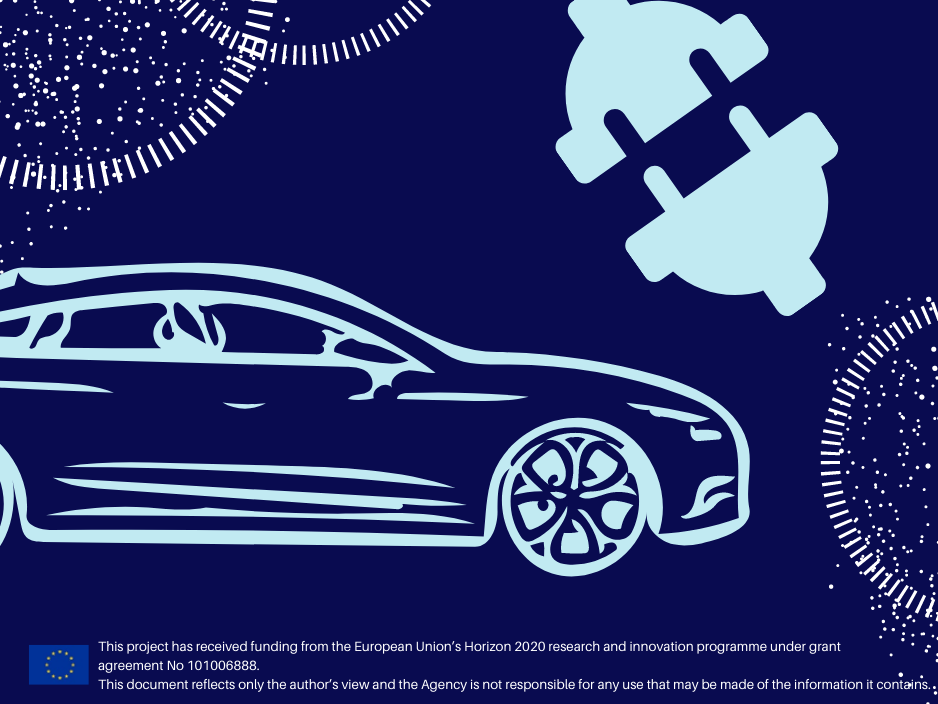EU awards €4,9 million grant for new project on lightweight components for electric vehicles
As electrical cars are powered by heavy-weight batteries, car manufacturers and suppliers must search for new light-weighting technologies to compensate for this excess weight in other car components. These technologies can directly contribute to improve vehicle efficiency in terms of kWh consumed per km and vehicle range (kms with a full battery cycle), and to reduce the environmental impact. Weight saving without compromising on component performance To tackle this challenge, thirteen industrial and research partners from seven countries have joined forces to develop cost-effective lightweight components for electric vehicles using eco-design and circular approaches. The technical and economic feasibility, as well as their environmental impact will be showcased through three real-case demonstrators: a suspension control arm, a battery holding set and a cross car beam. “We will use for this multi-material solutions based on carbon fibre thermoplastic composites optimally integrated with metals, which will be produced using cost-effective and scalable manufacturing technologies,” said José Ramón Valdés, Project Coordinator from ITAINNOVA (Instituto Tecnológico de Aragón). Thanks to their outstanding specific mechanical properties, these composites properly combined with metals are ideally suited for lightweight applications. In this sense, LEVIS aims to develop solutions for these multi-material components based on specific environmentally friendly resins and reinforcement systems, cost-effective manufacturing processes, optimized joints, advanced simulation methodologies and structural health monitoring technologies. The combination of these developments will allow us to obtain lightweight, cost-effective and eco-friendly components without compromising their mechanical performance, structural integrity and reliability, even improving their service life. The next big thing in design is circular “The lightweight components will be developed using a circular approach. This means, we will pay special attention on using recyclable materials and designing the components in a way that after the components’ end-of-life nothing will become waste and every part can be recycled or reused for the same or for other applications,” stated Theodora Skordili, Business Development Manager at Cenex Nederland. Thus, only recyclable resins, bio-resourced and recycled carbon fibres will be used for building the target components. Moreover, the components’ service-life will be maximized, and all structural parts will be designed to enable a simple and effective dismantling and reuse of the components. Introducing light-weight components into the market The consortium’s goal is to introduce these innovative electric vehicle components into the market by the end of the project. For this, LEVIS will follow a structured exploitation strategy, covering multi-actor stakeholder consultation, intellectual property protection, business modelling and an advanced commercialization plan. For further information contact: José Ramón Valdés, Project Coordinator +34 976 011 160 / +34 692041461 jrvaldes@itainnova.es Project Partners: Instituto Tecnológico de Aragón, Marelli Suspension Systems Italy S.p.A Mersen France Angers SAS, Privé Srl, Yeşilova Holding A.Ş., Tofaş Türk Otomobil Fabrikasi A.Ş., Asociación de Investigación Metalúrgica del Noroeste, Centre Technologique Nouvelle-Aquitaine Composites & Matériaux Avancés, Leartiker S. Coop, Rise Sicomp AB, Commissariat à l’Energie Atomique et aux Energies Alternatives, Stichting Cenex Nederland, Steinbeis-Europa-Zentrum der Steinbeis Innovation gGmbH Funding: This project has received funding from the EU Horizon 2020 Research and Innovation Programme under Grant Agreement No. 101006888. Disclaimer: This press release a) reflects only the author’s view; and b) exempts the European Commission from any use that may be made of the information it contains.
Keywords
Electric Vehicles, Circular Economy, Eco-design, lightweight components, carbon fibre thermoplastic composites, zero waste



